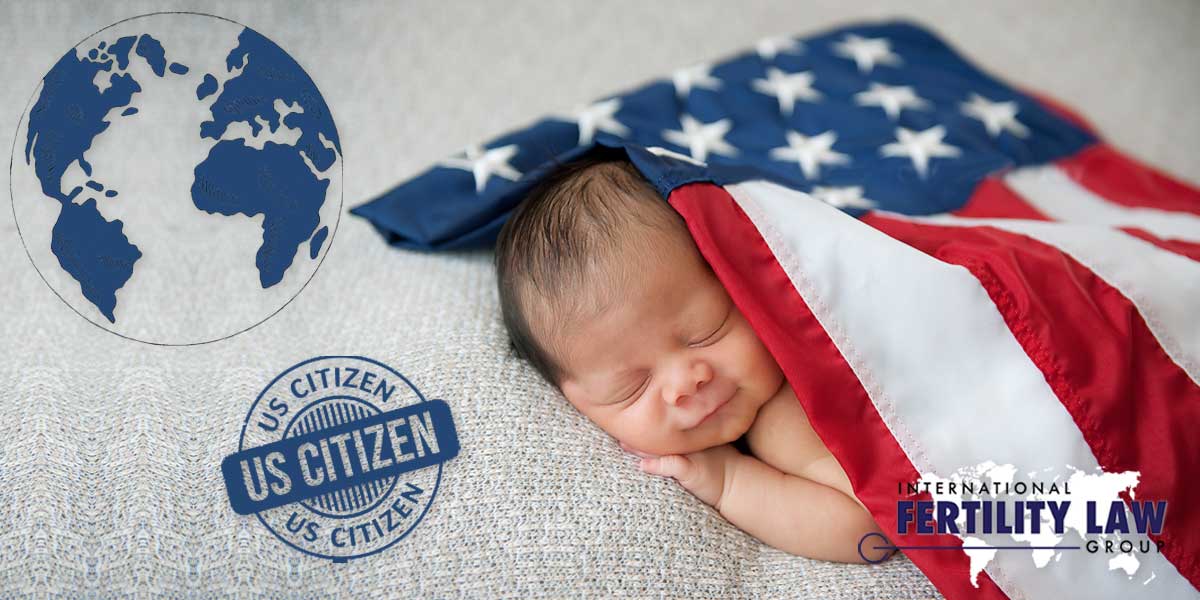
19 May 2021 U.S. Recognizes Citizenship of Babies Born by Assisted Reproduction Abroad
We at IFLG, our colleagues in the field of assisted reproductive technology (ART) and advocates for families everywhere are celebrating a long-awaited victory today: The U.S. State Department has officially updated its policy to recognize the U.S. citizenship of children born abroad via assisted reproduction as long as one parent is a U.S. citizen.
Recognizing the advances in assisted reproductive technology (ART), the State Department has adopted the recommendations of a 2016 American Bar Association resolution, updating its interpretation and application of Section 301 of the Immigration and Nationality Act (INA). (See: U.S. Citizenship Transmission and Assisted Reproductive Technology - United States Department of State.)
With this updated interpretation, children born abroad to married parents, at least one of whom is a U.S. citizen, will be U.S. citizens from birth if they have a genetic or gestational tie to at least one of their parents and meet the INA's other requirements.
Outdated Rule Used to Discriminate Against Same-Sex Parents
This updated interpretation might sound like simple common sense, but until now the INA, established in 1952—long before the first baby was born via in vitro fertilization in 1978—required that a baby born in a foreign country must be genetically related to a U.S. citizen parent in order to receive U.S. citizenship. That meant that in instances in which one partner was infertile or in the case of same-sex parents, the baby’s U.S. citizenship hinged on whether the genetic material used to conceive came from a U.S. citizen parent.
This rigid application of the outdated INA rule, particularly under the discriminatory interpretation of the Trump administration, forced many parents into time-consuming and costly legal battles to win their babies’ citizenship rights. Trump administration officials also used the arcane rule as justification to treat married LGBTQ parents differently than heterosexual parents.
We have written about several of those cases, including that of Simone, the daughter of two legally married U.S. citizen dads, born via surrogacy in England and denied U.S. citizenship because the father to whom she is genetically related had not met a legal residency requirement. Had the two dads been a dad and mom instead, it is doubtful that the question of Simone’s genetics would have ever been raised. But the two dads drew official attention, resulting in Simone’s designation as born “out of wedlock”—despite her dads’ married status, and triggering an extensive round of legal proceedings.
In another case we followed extensively, one twin son born via surrogate in Canada to married dads Elad and Andrew Dvash-Bank was granted U.S. citizenship; his sibling, born within a minute of his brother was denied—all because DNA testing revealed that one twin was genetically related to the U.S. citizen dad, the other to the dad who was an Israeli.
U.S. State Department Adopts ABA Resolution
During my tenure as chair of the ABA’s ART Committee, we worked for several years with Professor Holly Cooper from UC Davis and the ABA Commission on Immigration to draft the position paper in support of the resolution, which was co-sponsored by the ABA Science and Technology, Health Law, and Real Property, and Trusts and Estates sections. Shortly after the resolution was formally adopted by the ABA House of Delegates, Donald Trump was elected, and any hope for policies more friendly to parents using assisted reproduction abroad was dashed for the foreseeable future.
Today that has changed. I am proud of the work the members of the ART Committee of the Family Law Section accomplished in passing policies, supported by the world’s largest organization of lawyers, that promote reproductive freedom, responsibility in the industry, family unity, and clarity of the status of the children conceived through ART.
Today is a good day for children and families, especially for all those families and children who will no longer face the fear that their children will be stateless or the stress and expense of an arduous, diplomatic exception process. And it’s a good day for equality, the beginning of a time when children born through the miracle of modern reproductive technology will receive the same rights to citizenship and legal status as any other child born to U.S. citizens.

















